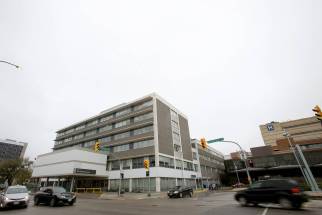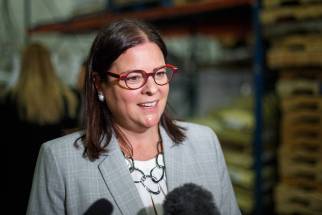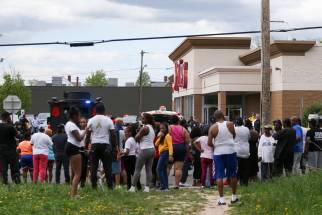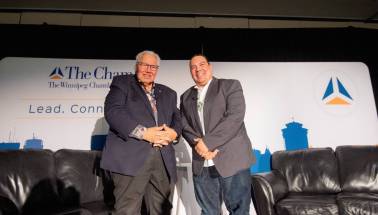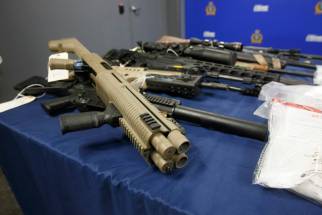Manitoba’s neurology services a ‘slow-evolving train wreck’ MS clinic near collapse, stroke and epilepsy patients suffering from shortage of specialists and technologists, desperate doctor warns
Read this article for free:
or
Already have an account? Log in here »
To continue reading, please subscribe:
Monthly Digital Subscription
$0 for the first 4 weeks*
- Enjoy unlimited reading on winnipegfreepress.com
- Read the E-Edition, our digital replica newspaper
- Access News Break, our award-winning app
- Play interactive puzzles
*No charge for 4 weeks then price increases to the regular rate of $19.00 plus GST every four weeks. Offer available to new and qualified returning subscribers only. Cancel any time.
Monthly Digital Subscription
$4.75/week*
- Enjoy unlimited reading on winnipegfreepress.com
- Read the E-Edition, our digital replica newspaper
- Access News Break, our award-winning app
- Play interactive puzzles
*Billed as $19 plus GST every four weeks. Cancel any time.
To continue reading, please subscribe:
Add Free Press access to your Brandon Sun subscription for only an additional
$1 for the first 4 weeks*
*Your next subscription payment will increase by $1.00 and you will be charged $16.99 plus GST for four weeks. After four weeks, your payment will increase to $23.99 plus GST every four weeks.
Read unlimited articles for free today:
or
Already have an account? Log in here »
Hey there, time traveller!
This article was published 19/05/2022 (1299 days ago), so information in it may no longer be current.
Manitoba’s multiple sclerosis clinic is “on the verge of collapse” and could be forced to close within the next three months, the doctor who oversees neurology services at Winnipeg hospital warned Thursday.
Dr. Dan Roberts, a professor in the University of Manitoba’s school of medicine, said that neurology services for stroke and epilepsy patients are also in jeopardy.
Roberts called a news conference “out of a sense of desperation” to warn the public about Manitoba’s shortage of specialized neurologists and electroencephalogram (EEG) technologists.
Government statement on neurology services
In a statement Thursday, a provincial government spokesperson said the province is committed to improving neurology and stroke services.
“Our government is supporting Shared Health in their efforts to strengthen neurology services and enhance local access to care for patients, including those living with epilepsy and MS. Our government implemented new initiatives to enhance neurology services in our province, including the adult epilepsy monitoring unit announced last year and the new dedicated acute stroke unit being constructed at HSC Winnipeg (for which funding will be in place to appropriately support when it comes online).
Shared Health has recruited an MS neurologist, two epileptologists, two stroke neurologists and a cognitive neurologist including support staff over the past 18 months. Additionally, physicians have been recruited to support inpatient work in neurology and stroke care, providing important patient care while freeing up some specialist care for more services. An interprovincial agreement has been signed with the B.C. Institute of Technology that provides two EEG seats for Manitoba students, and an increase in the clinical stipend for MS physicians has been approved.”
He said the province needs to recruit eight to 10 MS and stroke specialists over the next year. He said $2 million to $2.5 million in extra funding is needed to hire the doctors, expand clinical services and keep existing programs running.
The MS clinic at Health Sciences Centre serves 2,800 patients, but two of its neurologists have left over the past 2 1/2 years and it’s been difficult to recruit replacements; the four who remain are overloaded, Roberts said.
Allowing the clinic to close would be “disastrous,” with ripple effects for epilepsy and stroke services in the province, he added.
“In order to prevent that from happening, we basically have to employ desperate measures and we need support from the government and Shared Health in order to do that,” he said, adding he has a plan to bring in local neurologists who don’t specialize in MS to fill staffing gaps, but they need more financial resources and clinical support.
“I cannot recruit with empty promises.”
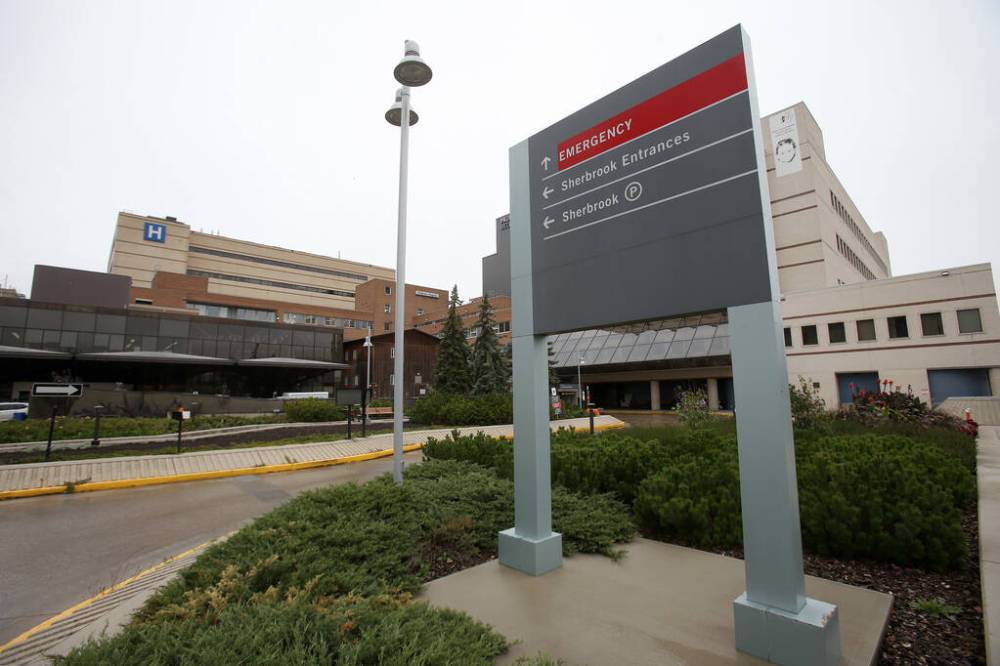
A Shared Health spokesperson did not specifically address Roberts’ three-month warning, but said the organization has recruited a specialized neurologist and a nurse practitioner to work in the clinic and further recruitment is continuing.
“While there are neurology staffing challenges in the MS Clinic, the clinic continues to provide care for patients living with the disease,” the spokesperson said.
“Shared Health is in the midst of bolstering staffing for the clinic, with recruitment for an additional MS neurologist in its final stages and recent approval to create an additional nurse practitioner position.”
“Shared Health is in the midst of bolstering staffing for the clinic, with recruitment for an additional MS neurologist in its final stages and recent approval to create an additional nurse practitioner position.” – Shared Health spokesperson
But Roberts said those commitments are not sufficient to keep the clinic running beyond the next 90 days; the neurologist won’t be ready to practise in the MS clinic until February, and the nurse practitioner position covers a maternity leave.
In the meantime, patients are getting worse while they wait for treatment, said Dr. Ruth Ann Marrie, medical director of the clinic and a leading expert in MS research. There are 100 MS patients on the clinic’s wait list, and those in line to see an occupational therapist there will have to wait two years.
“This is not reasonable,” Marrie said, explaining that the longer MS patients have to wait for care, the more likely they are to experience relapses of the condition, which can mean losing the ability to walk, see or work, in some cases.
“We do know there are people who haven’t been seen (at the clinic) who’ve gone to emergency rooms because things have happened while they’re waiting,” she said. “That’s not good for the health system and that’s not good for the patient.”
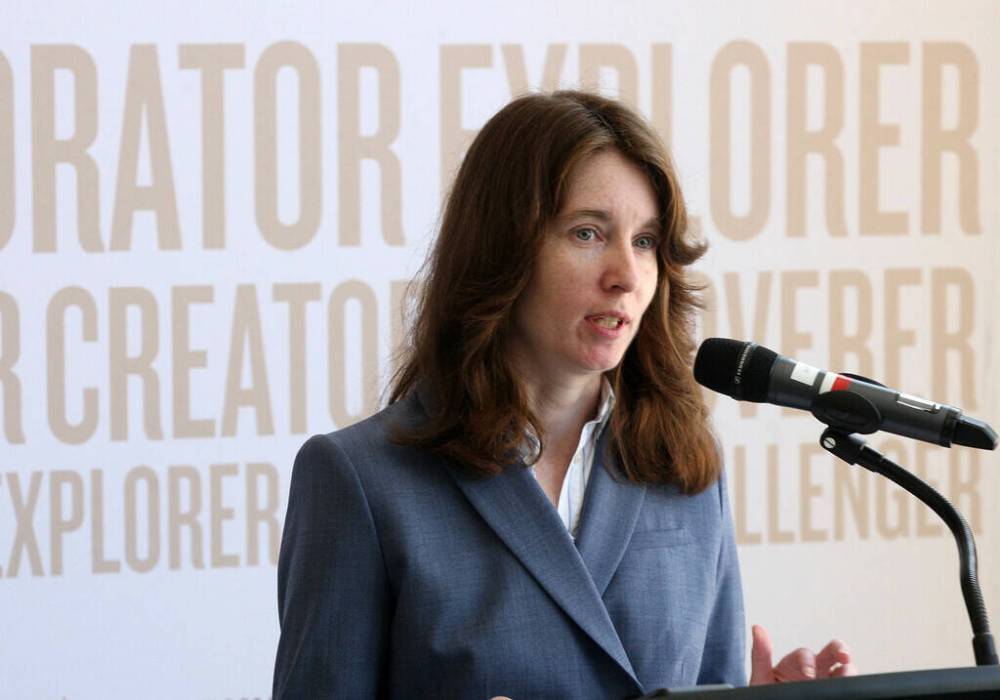
Roberts said the problem has been getting worse for a long time. Shortly before the pandemic began, the former head of critical care at HSC was handed the responsibility of dealing with the aftermath of an exodus of neurologists from Manitoba. He said he warned the province at that time about an impending shortage of EEG technicians, but didn’t see action on training or retention until it was too late.
Now, the wait list for EEGs doubles every four or five months, and access has been dramatically reduced, reserve primarily now for ER and ICU patients.
The delays mean Manitobans with epilepsy are ending up in the ER because they can’t get assessments elsewhere, or are facing long delays in getting basic services that require the assessments, such as driver’s licence renewal.
A full complement of 11 or 12 EEG technologists is needed, Roberts said; there are currently between two and four available on any given day.
“This was a slow-evolving train wreck, and they responded only after the crash occurred. So we can’t afford to allow the MS clinic to close. It would take years to be able to restore it and, frankly, I’m just not waiting for that to happen,” he said, adding public pressure will hopefully lead to more resources for neurology services.
“This was a slow-evolving train wreck, and they responded only after the crash occurred. So we can’t afford to allow the MS clinic to close.” – Dr. Dan Roberts
There’s also a shortage of stroke specialists, which Roberts predicted will delay the planned October opening of a new 28-bed stroke-treatment unit at HSC. A government spokesperson stated funding for the stroke unit will be in place “when it comes online.”
The shortage has meant all stroke patients have to be sent to HSC, and there are only two specialists on call. They have to be available at all times because of the time-sensitive nature of preserving brain function after a stroke. Even if the number of patients remained at pre-pandemic levels in Manitoba, there still wouldn’t be enough neurologists to care for them, Roberts said.
NDP Leader Wab Kinew said Manitobans should pay attention to Roberts’ warnings, describing him as an “influential voice in shaping Manitoba health policy for decades.”
“We’re in a bad state that can only be remedied with investments and the right sort of attention to ensure that these highly trained specialists can find a meaningful career path here in Manitoba,” to care for patients and keep developing their skills, Kinew said.
Liberal Leader Dougald Lamont said the province can’t recruit or retain physicians if they aren’t supported. Under the PCs and NDP, Lamont said, “big promises were made and nothing ever happened.”
katie.may@winnipegfreepress.com
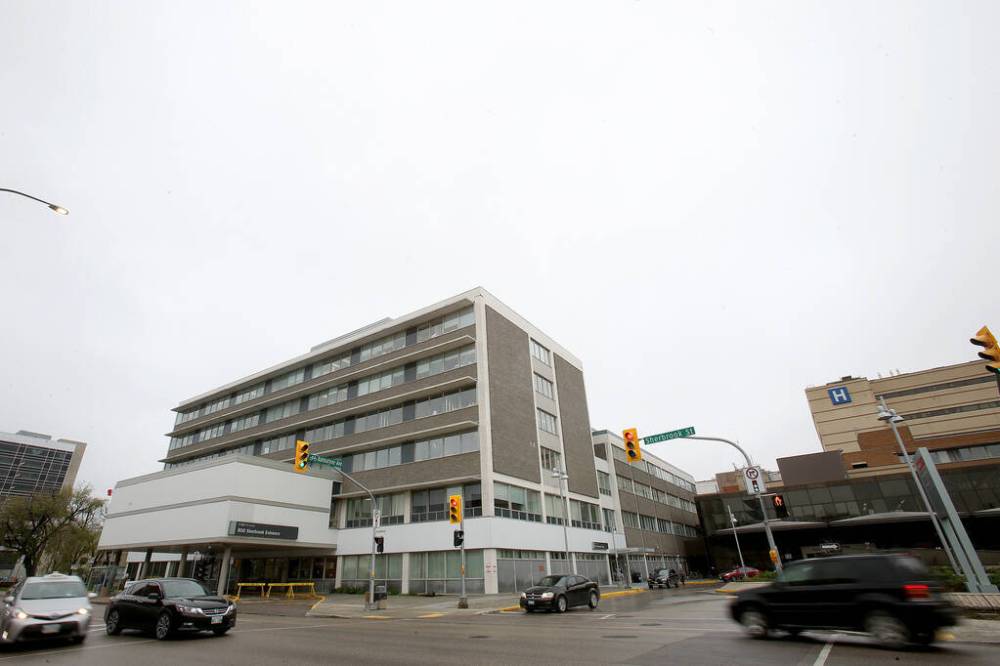

Katie May is a general-assignment reporter for the Free Press.
Our newsroom depends on a growing audience of readers to power our journalism. If you are not a paid reader, please consider becoming a subscriber.
Our newsroom depends on its audience of readers to power our journalism. Thank you for your support.



